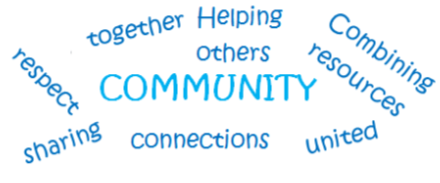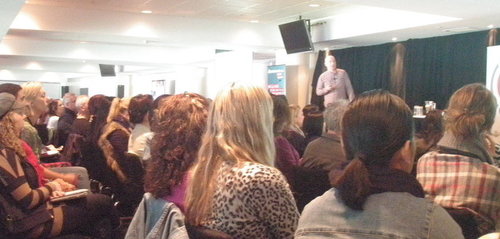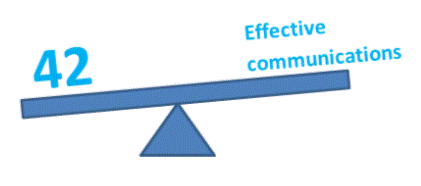Attending blogging events, live or recorded
This Friday and Saturday, about 300 bloggers will descend upon Melbourne to learn more about blogging at PBEvent with Problogger Darren Rowse.
And I’m pleased to say I will be one of them.
Why go to a blogging event?
I can’t speak for everyone, but I know I am going because
- it’s great to learn new things and conferences and seminars are a good learning experience (well, good ones are anyway!)
- it’s good to get away from my desk occasionally
- blogging is an important part of my business, and part that I really enjoy, so learning more about it is a good investment for me
- I like the idea of meeting other bloggers
Really, it’s just like going to any conference – the topic just happens to be blogging.
And PBEvent happens to be hosted by one of the best known bloggers in Australia. And is offering some great speakers and topics (you can see the schedule here if you’re interested).
How I learn from events
When I go to any business event, one of my aims is to learn.
I think being open to new ideas and expecting to learn is a good starting point. Sometimes the best value from an event is the ideas it sparks so you need to be open to listening and learning.
Taking notes is one way I cement the information I hear. Traditionally that has meant writing notes in a notepad but obviously people have more options these days – I’m still inclined to write notes by hand as it works better at getting information into my mind.
To be honest, I often don’t read those notes again, and certainly not often. However, just the act of writing notes helps me retain the information better.
I also find that tweeting snippets of information is a great learning tool. By deciding something is valuable enough to share and putting into few words (I try for less than the allowed 140 characters) makes that point stronger for me. And hopefully it is providing value to my followers as well.
Tweeting information during a webinar is easy. I haven’t yet tried it at a live event but may give it a go during PBEvent.
If nothing else, I can reread my tweets afterwards as a reminder of some key information.
Live or recorded?
There are distinct advantages to live and recorded information sessions, I think.
Going to a live event obviously has the advantages of a new environment and networking with other people. It also means you can potentially interact with the speaker(s), ask questions and participate in the atmosphere. Sometimes you get additional opportunities, too, such as handouts, ‘conference only’ discounts and yummy food!
Listening to a recording of an event gives you more flexibility – you can hear it at whatever time suits you – and saves travelling time and expense. For information packed sessions, a recording also means you can pause and rewind the recording to catch important bits and make sure you understand things. For a poor sessions, it is also very easy to turn it off and get on with other things!
Which do you prefer? Have you tried both options?
I attend more webinars because of the convenience, but I like to attend some live events every year as well to interact with people.
Problogger Event
With the Problogger event, I get both as all sessions are being recorded so I can listen to them after the weekend. Which means I can relisten to important bits I missed but more importantly, I can hear the sessions I don’t attend (part of the weekend has two sessions running at the same time). And slide presentations will be included with the recordings, too.
The recordings are also available for non-attendees via a virtual ticket (which are being sold at a 25% discount until mid afternoon today Melbourne time I believe). You can grab a virtual ticket and get access to over 21 hours of blogging information plus a live Q and A sessions with Problogger next week (it is an affiliate link but I honestly think it is good value – and much cheaper than what I’ve paid to attend!)
And if you are going to Problogger event, or a similar event, you may enjoy the following preparation posts, too:
Blogging conferences and training events
10 things to do to prepare for PB Event
Hot tips for Problogger ‘virgins’
Have you ever attended a blogging event? What did you get from it? And what tips have you got to share for those going to their first blogging conference?
 Updated September 2013: The 2013 Problogger conference is on again this month and you can choose to attend in person in Queensland (if you got a ticket fast enough!) or virtually (2013 recordings will available a short time after each sessions is run so you can listen on the conference weekend.) plus watching interactions on Twitter during sessions.
Updated September 2013: The 2013 Problogger conference is on again this month and you can choose to attend in person in Queensland (if you got a ticket fast enough!) or virtually (2013 recordings will available a short time after each sessions is run so you can listen on the conference weekend.) plus watching interactions on Twitter during sessions.










Recent Comments